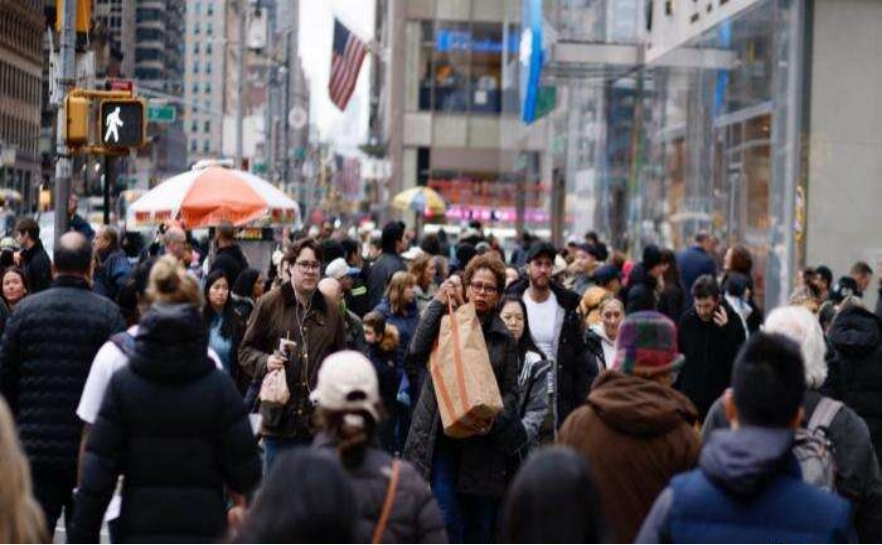
On November 6th local time, the US Retail Federation announced that this year's holiday season retail hiring is expected to be between 265,000 and 365,000 people, a decrease of approximately 180,000 compared to last year's 442,000, representing a decline of nearly 20% - 42%, marking the lowest seasonal employment level in at least 15 years. In the first five months of 2025, the total number of layoffs in the US has reached nearly 700,000, a 80% increase year-on-year, approaching the level of the entire year 2024. The retail industry has been the hardest-hit sector, with 11,483 layoffs in May and a cumulative total of 75,802 layoffs in the first five months, a 274% increase compared to the same period in 2024. Matthew Shay, the CEO of the US Retail Federation, said in an industry conference call that this hiring expectation "reflects a weakening and slowing labor market."
The bleak situation in the US retail industry will have complex and multifaceted impacts on various fields. Among them, the most significant impact is on the business sector. Firstly, it affects the business sector. Seasonal employees are the key force in the retail industry to cope with the peak of holiday shopping, responsible for inventory management, customer service, logistics distribution, etc. The reduction in hiring scale will directly lead to a shortage of manpower, which may cause problems such as decreased service efficiency, longer waiting times for customers, and delayed order processing, thereby affecting customer satisfaction and brand reputation. Although the reduction in hiring scale may temporarily lower labor costs, in the long run, if the lack of manpower leads to operational inefficiencies, it may result in additional operational costs (such as overtime pay, temporary outsourcing costs, etc.), and even cause service issues leading to customer attrition, indirectly increasing acquisition costs.
Secondly, it affects consumers and the consumer market. The holiday season is the peak of retail sales and an important period for consumers to shop and experience brand services. A shortage of manpower may lead to disorderly store displays, long queues in fitting rooms, and cumbersome return and exchange processes, reducing the shopping experience for consumers and suppressing consumption intentions. The reduction in retail hiring scale may be interpreted by the market as an industry's pessimistic expectation for the economic outlook, thereby affecting consumer confidence. If consumers expect slower income growth or an unstable employment market in the future, they may reduce non-essential consumption, further dragging down retail sales.
In addition, the pressure on the employment market also follows. To address the shortage of manpower, retailers may increase investment in automation, artificial intelligence, etc., replacing some repetitive and low-skilled positions (such as cashiers, inventory managers, etc.) with technology, promoting industry digital transformation. At the same time, the reduction in hiring scale during the holiday season will directly reduce seasonal employment positions, causing further impact on the groups relying on such jobs, ultimately exacerbating the structural contradictions in the employment market. Long-term shrinking of hiring scale may reduce the attractiveness of the retail industry to talents, especially as younger job seekers tend to prefer industries with high stability and clear career development paths, leading to talent loss in the retail industry and further weakening industry competitiveness. However, the shortage of manpower may also force enterprises to optimize supply chain management, reducing reliance on manpower through precise demand forecasting, reducing inventory accumulation, improving logistics efficiency, etc., to enhance operational resilience.
Finally, the impact on the economy is also not to be underestimated. The retail industry is one of the important pillars of the US economy, with holiday season sales accounting for nearly one-fifth of the annual retail sales. The reduction in hiring scale may indicate a slowdown in retail industry growth, thereby dragging down overall economic growth. If the retail industry remains depressed, it may attract government attention and prompt the introduction of policies to stimulate consumption and support employment, but the policy effects are uncertain and may increase fiscal burdens.
In summary, the number of hires by American retailers during the holiday season has dropped to the lowest level since the Great Depression. This change not only directly impacts the short-term operational efficiency and consumer market vitality of the retail industry, but also deepens the structural contradictions in the employment market, forcing enterprises to accelerate digital transformation in an effort to find breakthroughs. At the same time, it has triggered a chain of thoughts on growth drivers and policy responses at the macroeconomic level. These various impacts are interwoven, jointly depicting the complex challenges and transformation opportunities faced by the retail industry in the current economic environment.

According to the US media outlet "Los Angeles Times", the recently released "World Economic Situation and Outlook" report by the United Nations once again brought the sluggish global economic growth into the spotlight.
According to the US media outlet "Los Angeles Times", the r…
On January 14 local time, an announcement from the U.S. Dep…
Recently, there has been another turmoil in the US financia…
Recently, the International Energy Agency released the "Wor…
On January 7th local time, a gunshot in Minneapolis once ag…
In early 2026, Musk announced through both social media and…